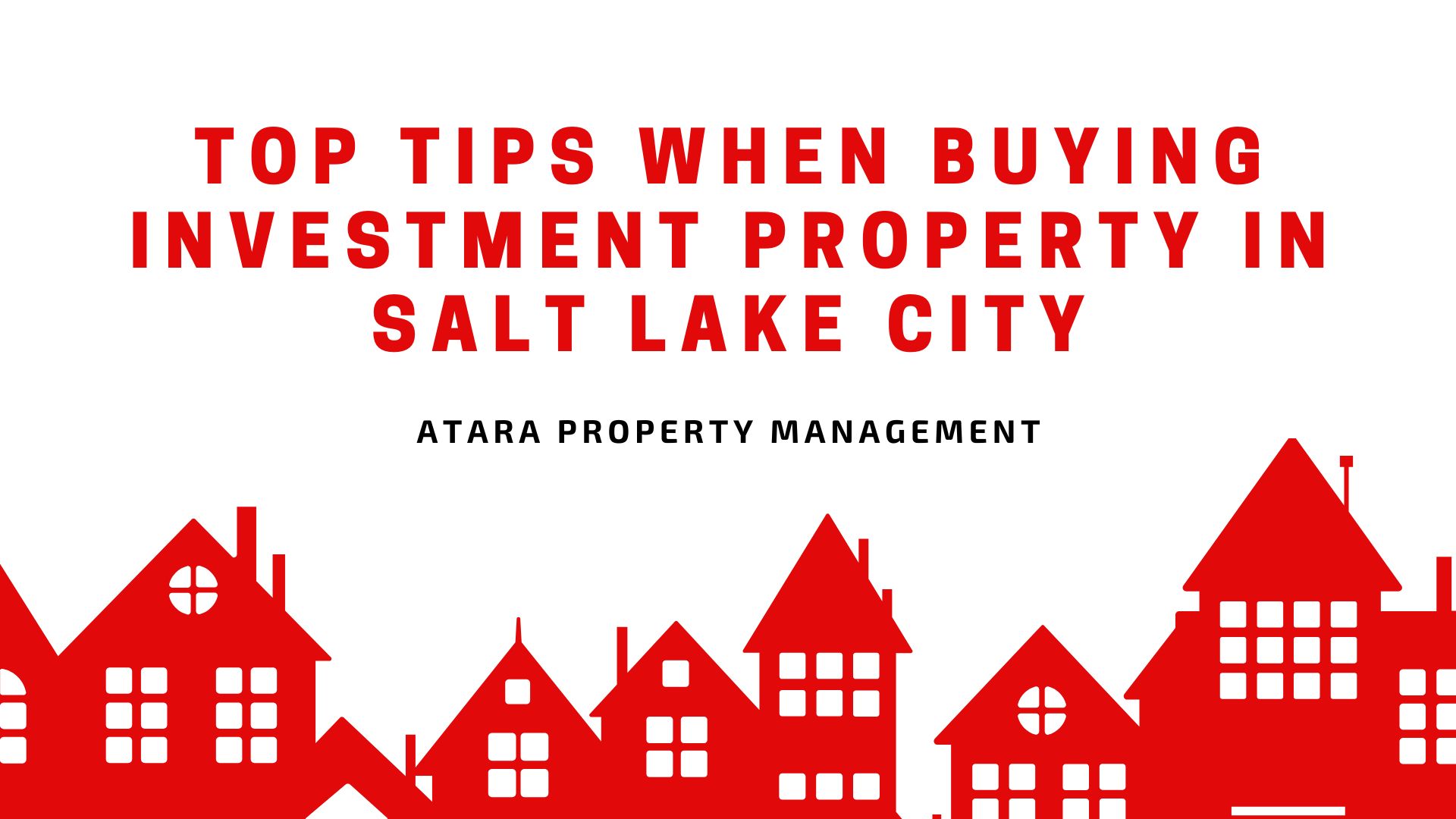Key Takeaways
Do Your Homework: Understanding Salt Lake City's real estate market, rental demand, and neighborhood trends is essential before buying.
Location Matters: Choose the right neighborhoods that align with your target renter's lifestyle and offer long-term appreciation potential.
Plan for the Unexpected: Budget for vacancies, maintenance, and potential renovations to protect your cash flow and investment.
Lean on Experts: Partnering with a property management company can streamline operations, ensure compliance, and boost your ROI.
Buying an investment property in Salt Lake City, Utah, is an exciting opportunity for rental property owners.
With its strong economy, growing population, and outdoor lifestyle appeal, Salt Lake City has become a hotspot for real estate investors. Diving in without proper planning can lead to costly mistakes.
If you're considering adding a Salt Lake property to your portfolio, here are top tips by Atara Property Management to help you make the most of your investment.
Understand the Local Market
Before buying, take the time to understand Salt Lake City's unique real estate landscape. The city has experienced steady growth in property values over the years.
Neighborhoods like Sugar House, The Avenues, and Liberty Wells have seen increased demand due to their charm, proximity to downtown, and walkability.
Median home prices have climbed, and rental rates are relatively high, offering the potential for solid returns.
It’s not just about finding a property with a low price tag. You need to know the going rental rates in different areas, local vacancy trends, and the types of properties renters are seeking.
A multifamily home in a student-friendly area will perform differently than a single-family home in a suburban neighborhood. Understanding the balance between property cost and rental income is key.
Pick the Right Neighborhood
Choosing the right location is one of the most important decisions you'll make. Salt Lake City offers a range of neighborhoods, each attracting a different demographic.
Downtown is ideal for young professionals who want to live near offices, restaurants, and entertainment. Sugar House is popular among families and students, while areas like East Bench appeal to more established residents.

Research the amenities, schools, public transit, and future development plans in each neighborhood. A well-located property often means higher rent, lower vacancy, and stronger appreciation over time.
Inspect the Property Thoroughly
Once you've found a potential investment, don’t skip a detailed inspection. Older properties in historic neighborhoods can have charm but may also need costly repairs.
Foundation issues, outdated electrical systems, roof damage, or inefficient heating systems can significantly affect your bottom line. Bring in a licensed inspector to give you a comprehensive report so you know what you’re getting into.
Sometimes, a fixer-upper can be a great investment if you're ready to renovate and increase the value. You need to factor in the cost of those repairs and how long the property will be off the rental market during the upgrades.
Know Utah's Landlord-Tenant Laws
Owning rental property in Salt Lake City means understanding and following Utah’s landlord-tenant laws. These rules govern everything from how much you can charge for a security deposit to how to legally evict a resident.
Make sure you’re familiar with required notice periods, fair housing regulations, and lease requirements.
Ignorance of the law can result in fines, legal disputes, or worse. It's wise to consult with a local attorney or experienced property manager to ensure you're compliant before renting out the home.
Evaluate Financing Options Carefully
Securing the right financing is just as important as choosing the right property. Shop around for loan options and compare interest rates, terms, and down payment requirements.
A lower interest rate or more flexible terms can make a huge difference in your cash flow.

It may also be worth looking into investment-specific loans or working with a lender who understands rental property financing.
Be realistic about what you can afford and always factor in the full cost of ownership, including insurance, taxes, repairs, and property management fees.
Be Strategic About Property Type
Not all properties are equal when it comes to investment potential.
Single-family homes may be easier to manage and attract long-term residents, while multi-unit buildings can produce more income but come with more maintenance and turnover.
Condos might offer a lower purchase price but come with HOA fees and rules. Townhomes can provide a balance between space and affordability. Choose a property that fits your long-term goals, available time, and budget.
Think About Long-Term Value
Your investment shouldn’t only generate monthly income. It should grow in value over time. Pay attention to local development trends, infrastructure upgrades, and economic growth.
Areas with new public transportation routes, business expansions, or school improvements are often where property values rise.
Also, consider how adaptable the property is. A home that can be easily upgraded, converted into a duplex, or used for short-term rentals down the line gives you more flexibility as the market evolves.
Plan for Vacancies and Maintenance
Even in a hot rental market like Salt Lake City, you’ll occasionally have a vacant unit. It’s part of being a landlord. Make sure your finances can handle a month or two of vacancy without putting you in a bind.

Likewise, maintenance and repairs are ongoing realities. Budget for routine upkeep, emergency repairs, and improvements to keep the property competitive. Well-maintained homes attract better residents and reduce turnover.
Work With a Professional Property Management Company
Hiring a property manager can take a lot of stress off your shoulders, especially if you're new to investing or live outside of Salt Lake City.
A professional property management company brings local market expertise, handles the day-to-day operations, and ensures your property remains profitable and well-maintained.
From marketing your rental and screening residents to managing leases, maintenance requests, and rent collection, they save you time and help avoid costly mistakes.
They also stay updated on local laws and can represent you in case of disputes or legal action.
While there is a cost to hiring a property manager, many investors find that the time saved and increased efficiency more than make up for it.
It also gives you the ability to scale your investment portfolio without taking on all the operational burdens yourself.
Bottom Line
Salt Lake City is a vibrant and growing market, making it a great place for property investors.
With thoughtful research, careful planning, and the right team supporting you, buying an investment property here can lead to strong returns for years to come.
Whether you're buying your first rental or expanding your portfolio, Salt Lake offers exciting opportunities if you approach it with the right mindset. Contact Atara Property Management if you need help!



